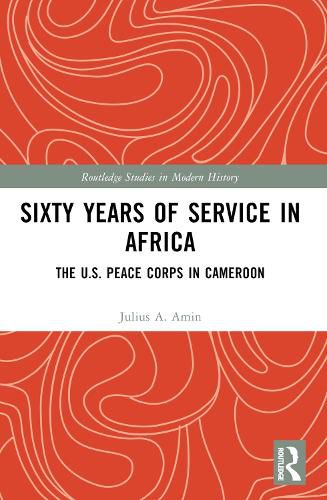Readings Newsletter
Become a Readings Member to make your shopping experience even easier.
Sign in or sign up for free!
You’re not far away from qualifying for FREE standard shipping within Australia
You’ve qualified for FREE standard shipping within Australia
The cart is loading…






Based on previously unused primary sources obtained from both sides of the Atlantic, this study provides a more fundamental, consistent, and balanced source-based assessment of the role of the U.S. Peace Corps across its entire existence in Africa. The study sheds light on a new and intriguing historical perspective of the Peace Corps' meaning and significance. Though the main trust is Cameroon, the study offers a window to understanding Peace Corps performance in all of Africa, and the larger global community. It examines Volunteers' service in countries including Nigeria, Ghana, Togo, and Guinea, showing how the agency transitioned from a Cold War agency to the Post-Cold War era, while asking important questions about the continuous relevance of Peace Corps in Africa.
In addressing the topic, the book goes beyond the Peace Corps and delves into America's "Achilles heels," which was the culture of anti-black racism, showing how it impacted U.S. foreign policy in the post-World War II era. The book interrogates modernization theories showing how those ideas shaped the creation of the Peace Corps, but ultimately contributed to the agency's problems. The book questions the Peace Corps' effectiveness as a development organization and much more. Yet for all the agency's problems, the Peace Corps served as a rite of passage for returned Volunteers to make everlasting contributions to American life and society.
This book contributes to modern African and American studies, and to diplomatic history.
$9.00 standard shipping within Australia
FREE standard shipping within Australia for orders over $100.00
Express & International shipping calculated at checkout
Based on previously unused primary sources obtained from both sides of the Atlantic, this study provides a more fundamental, consistent, and balanced source-based assessment of the role of the U.S. Peace Corps across its entire existence in Africa. The study sheds light on a new and intriguing historical perspective of the Peace Corps' meaning and significance. Though the main trust is Cameroon, the study offers a window to understanding Peace Corps performance in all of Africa, and the larger global community. It examines Volunteers' service in countries including Nigeria, Ghana, Togo, and Guinea, showing how the agency transitioned from a Cold War agency to the Post-Cold War era, while asking important questions about the continuous relevance of Peace Corps in Africa.
In addressing the topic, the book goes beyond the Peace Corps and delves into America's "Achilles heels," which was the culture of anti-black racism, showing how it impacted U.S. foreign policy in the post-World War II era. The book interrogates modernization theories showing how those ideas shaped the creation of the Peace Corps, but ultimately contributed to the agency's problems. The book questions the Peace Corps' effectiveness as a development organization and much more. Yet for all the agency's problems, the Peace Corps served as a rite of passage for returned Volunteers to make everlasting contributions to American life and society.
This book contributes to modern African and American studies, and to diplomatic history.